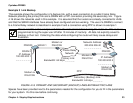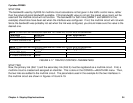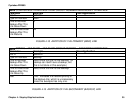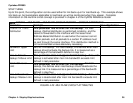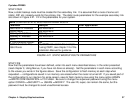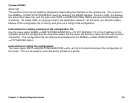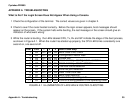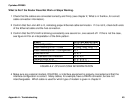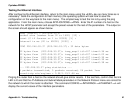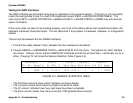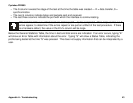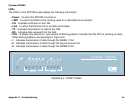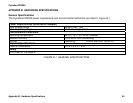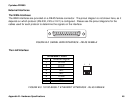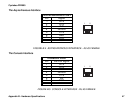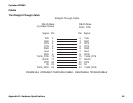
Cyclades-PR2000
Appendix A - Troubleshooting 41
Testing the Ethernet Interface
After configuring the Ethernet interface, return to the main menu using the <ESC> key as many times as is
necessary. Save the configuration to flash memory (the operating system will ask how to save the
configuration on the way back to the main menu). The simplest way to test the link is by using the ping
application. From the main menu, choose APPLICATIONS =>PING. Enter the IP number of a host on the
network for the
HOST
parameter and accept the preset values for the rest of the parameters. The output on
the screen should appear as shown below.
Host [host00] : 200.246.93.37
packet size (number from 32 to 1600) [32] :
count (0 if forever or 1 to 30000) [5] :
interval in ms (20 to 60000) [1000] :
PING 200.246.93.37 (200.246.93.37): 32 data bytes
32 bytes from (200.246.93.37): icmp_seq=1 ttl=127 time=1.96 ms
32 bytes from (200.246.93.37): icmp_seq=2 ttl=127 time=1.02 ms
32 bytes from (200.246.93.37): icmp_seq=3 ttl=127 time=0.99 ms
32 bytes from (200.246.93.37): icmp_seq=4 ttl=127 time=0.99 ms
32 bytes from (200.246.93.37): icmp_seq=5 ttl=127 time=0.98 ms
--- 200.246.93.37 ping statistics ---
5 packets transmitted, 5 packets received, 0% packet loss
round-trip min/avg/max = 0.98/1.19/1.96 ms
Pinging the router from a host on the network should give similar results. If the test fails, confirm that the link
LED is lit and that the
IP Address
and
Subnet Mask
parameters in the Network Protocol menu are correct for
the network to which the router is attached. The command CONFIG =>INTERFACE =>ETHERNET =>L will
display the current values of the interface parameters.



